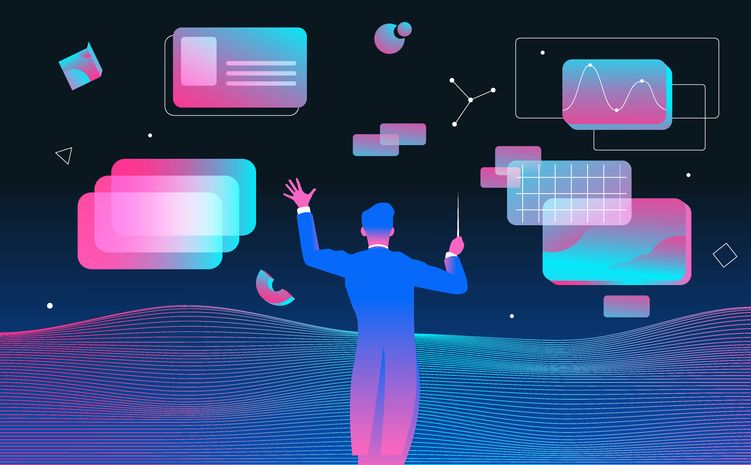
The use of AI tools in music production is revolutionizing the creative process. Artists and producers are increasingly relying on AI-driven platforms for mixing, mastering, and even composing. However, this shift has sparked concerns about the potential loss of human creativity. In this article, we explore how AI is transforming music production, the benefits and challenges it presents, and the ethical questions that arise.
The Rise of AI in Music Production
AI has become a powerful tool in the studio, significantly changing how music is created. Programs like iZotope Ozone and Landr provide automated mastering, while platforms like AIVA and MuseNet are capable of composing original pieces. These tools streamline workflows, automating routine tasks such as EQ adjustments and sound selection. Consequently, producers can focus more on the creative aspects of music production.
Moreover, AI isn’t just limited to technical processes. Creative tools like Amper Music allow users to input parameters like mood and genre, with the AI generating music tailored to those specifications. This collaboration between human input and AI technology opens new creative possibilities but also raises questions about originality.
Musicians’ Concerns: Losing the Human Touch
Despite its advantages, many in the music industry are wary of AI’s growing influence. A major concern is that an over-reliance on AI could lead to a homogenized sound. Music produced by machines lacks the emotion, nuance, and imperfections that are inherent in human performance.
Another issue is job displacement. As AI tools become more sophisticated, roles like sound engineers and session musicians may face diminished demand. However, AI advocates argue that these tools are designed to complement human creativity, not replace it.
AI as a Collaborative Tool, Not a Replacement
For many artists, AI serves as a collaborator. In the studio, it can be used to generate ideas, experiment with new sounds, or remix existing tracks. This collaboration allows artists to push creative boundaries and explore new possibilities.
In this way, AI augments creativity rather than diminishes it. It offers musicians a broader palette of tools to bring their artistic visions to life. While AI can assist in producing innovative music, the human element remains essential to adding depth and emotion to a track.
Ethical Concerns: Ownership and Authenticity
AI-generated music also raises ethical questions, especially regarding ownership. If an AI program composes a song, who owns the rights? Should credit go to the artist, the developer of the AI, or both? As the role of AI in music grows, there is a need for clearer guidelines around intellectual property.
Additionally, authenticity remains a concern. Fans often connect with music because it reflects personal experiences and emotions. Critics argue that AI cannot capture these human nuances. While AI can generate melodies and harmonies, the emotional depth that makes music resonate with listeners still requires human input.
The Future of AI in Music: Innovation or Automation?
As AI technology continues to evolve, its role in music production is likely to grow. The challenge will be finding a balance between innovation and automation. While AI enhances efficiency and offers new creative opportunities, the essence of music—human emotion and expression—must not be lost.
Conclusion: Striking a Balance Between Innovation and Integrity
Music Industry Weekly acknowledges that the future of music production lies in balancing AI innovation with human creativity. While AI presents exciting growth opportunities, it’s important to remember that the emotional depth and authenticity of music still rely on the human element. As AI tools continue to advance, the music industry must ensure that technology serves as a complement to, not a replacement for, human artistry.